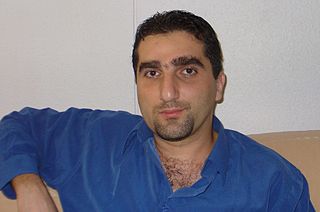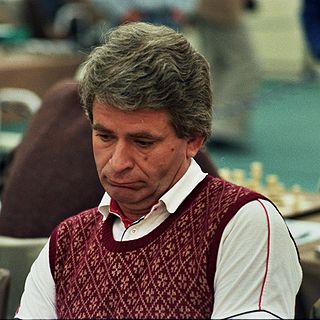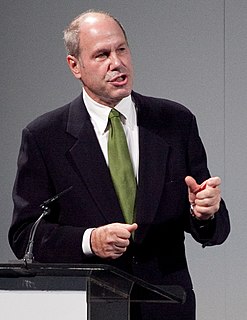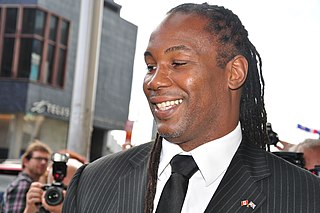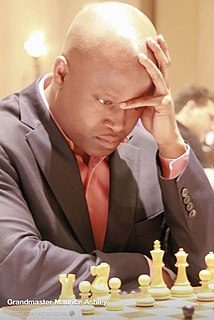A Quote by Ron Livingston
Life is not always like chess. Just because you have the king surrounded, don't think he is not capable of hurting you.
Quote Topics
Related Quotes
Chess - it's a nonmainstream game. And the irony is that when you look at Hollywood, it kept using chess as the symbol of intelligence for its heroes, for its top characters, all the time. So it's from "Casablanca" to "Harry Potter." You always have chess as a very important element to demonstrate intelligence, while in normal life people think it's just a weird intelligence - like AI.
I don't think I have a favorite chess move, other than checkmate, because each move is part of a combination of other moves. Just like I don't have a favorite piece, because they all work together. I mean, I love myself; I am the king on the board, but other pieces do different things and they all work together, so it's not one particular move unless it's checkmate because usually there's an answer. You know, chess is about questions and answers.
I love chess, and I didn't invent Fischerandom chess to destroy chess. I invented Fischerandom chess to keep chess going. Because I consider the old chess is dying, it really is dead. A lot of people have come up with other rules of chess-type games, with 10x8 boards, new pieces, and all kinds of things. I'm really not interested in that. I want to keep the old chess flavor. I want to keep the old chess game. But just making a change so the starting positions are mixed, so it's not degenerated down to memorisation and prearrangement like it is today.
Like Dvoretsky, I think that (all other things being equal), the analytical method of studying chess must give you a colossal advantage over the chess pragmatist, and that there can be no certainty in chess without analysis. I personally acquired these views from my sessions with Mikhail Botvinnik, and they laid the foundations of my chess-playing life.
I started playing chess when I was about 4 or 5 years old. It is very good for children to learn to play chess, because it helps them to develop their mental abilities. It also helps to consolidate a person's character, because as it happens both in life and in a chess game we have to make decisions constantly. In chess there is no luck and no excuses: everything is in your hands.
He is the so-called father of the modern school of chess; before him, the King was considered a weak piece and players set out to attack the King directly. Steinitz claimed that the King was well able to take care of itself, and ought not to be attacked until one had some other positional advantage. He understood more about the use of squares than Morphy and contributed a great deal more to chess theory.
I play chess about four hours a day in training camp. You have to decide what move to use, or what combination of moves. I think less when I box because the reaction time is a lot quicker, but some people call me the chess boxer because they say I think too much in the ring. I take my time and they don't see the action they want. Some boxers just go in there and just throw punches and hope to win.
Well, I kind of split my life into two pieces. One was where my chess career lies. There, I kept my sanity, so to speak, and my logic. And the other was my religious life. I tried to apply what I learned in the church to my chess career too. But I still was studying chess. I wasn't just "trusting in God" to give me the moves.
I think most people are fascinated by chess for that reason. It's just these mystical shapes. It's almost like Harry Potteresque, like wizard's chess in a way. The pieces come alive and you're the sorcerer. You're the magician and you get to do what you want with them and hopefully you don't screw it up.

